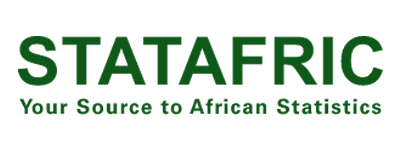Brazzaville — To strengthen health systems and protect people from financial strain when seeking care, the African Union Institute for Statistics (STATAFRIC) and the World Health Organization (WHO) in the African Region are deepening their collaboration to improve how countries measure health spending and monitor financial protection.
By advancing the quality of health data, this partnership supports governments to make informed decisions, ensuring that resources are directed where they are needed most and accelerating progress toward Universal Health Coverage (UHC).
A series of trainings co-organized by STATAFRIC and WHO are equipping countries with practical skills to compile and interpret National Health Accounts (NHA) using the System of Health Accounts (SHA 2011) framework. This global standard helps countries better understand health spending patterns and build more responsive, people-centred health systems.
To support these efforts, a three-day workshop was held in Accra, Ghana, in September 2024. Representatives from 18 Anglophone Member States joined technical experts and international partners to explore how to harmonize health expenditure reporting and strengthen collaboration between national statistical offices and ministries of health.
Participants examined global health spending trends, shared experiences and identified pathways to reinforce institutional coordination, highlighting both common challenges and opportunities to advance harmonized data standards for Africa.
“By speaking a common statistical language, African countries can better understand where and how resources are used and how to channel them to protect their populations,” said Dr José Awong Alene, Head of the Statistical Systems Coordination and Innovation Division at STATAFRIC.
Following the Accra meeting, a second sub-regional training was held in Dakar, Senegal, from 14 to 17 October 2025. Co-organized with the World Bank, the workshop brought together experts from 25 francophone countries to strengthen skills in monitoring financial protection in health, including analysing household survey data to understand when health costs become a barrier to care.
Using STATA software, participants reflected on what the data reveal about access to care. Case studies and policy discussions underscored how clearer, disaggregated data help countries identify populations most at risk of financial hardship and apply this evidence to support more equitable health policies.
“In Africa, millions of families still face financial hardship due to health spending. Reliable, comparable data are essential to guide policies that ensure no one is left behind,” noted Dr Mady Ba, Head of Emergencies at the WHO Office in Senegal.
In 2026, the collaboration will expand with two additional workshops for francophone and anglophone countries. These sessions will help Member States translate strengthened data systems into stronger policies, reinforcing the link between health financing information, policy formulation and action. The initiative supports the African Union’s Strategy for the Harmonization of Statistics in Africa (SHaSA 2) and Agenda 2063, while advancing progress toward SDG 3.8 on universal health coverage and financial protection.
“Reliable data are the backbone of effective health systems. Through this collaboration with STATAFRIC, we are empowering countries to produce and use credible evidence that drives smarter investments, strengthens accountability and ultimately improves people’s lives,” said Dr Adelheid Werimo Onyango, Director of the Health Systems and Services Cluster, WHO Regional Office for Africa.
This joint effort equips countries with the tools needed to generate trusted, comparable statistics that inform evidence-based decision-making, increase domestic investment in health and accelerate progress towards Universal Health Coverage. It reflects the One African Approach to Data—bringing regional and global institutions together to ensure every country has the capacity to measure what truly matters: people’s health and well-being.
About WHO
The World Health Organization (WHO) is the United Nations specialized agency for health. WHO works with countries and partners to promote health, keep the world safe and serve the vulnerable. In the African Region, WHO supports Member States to strengthen health systems, expand Universal Health Coverage and ensure that everyone, everywhere, can access the health services they need without financial hardship.









